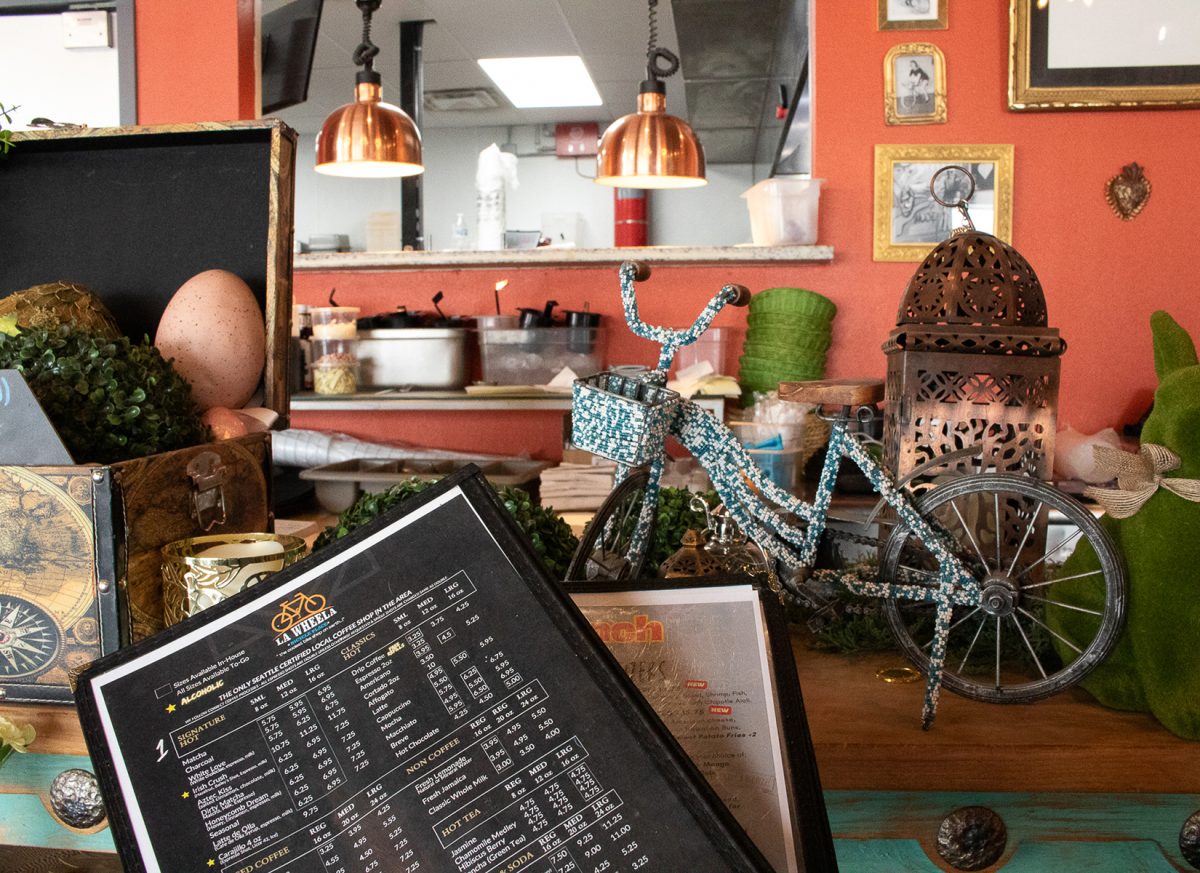Just like that–Thanksgiving is over. The week before dragged itself to Thursday, and now it’s the Tuesday after. Leftovers from Thanksgiving can hardly suffice for a snack, new workout plans have been established to fight off the extra pudge and the orange-and-brown decorations have been packed up and replaced with the green, red and silver that can only mean one thing: Christmas.
Radio stations switch over to their 30-song loop, celebrities who don’t even have a decent regular season album are announcing their Christmas albums as if they were Michael Bublé, and no one else is Michael Bublé than Michael Bublé during Christmas.
Even social media starts bursting with proclamations of Christmas being the favorite holiday of the year.
It all starts with Black Friday—Thanksgiving deals are just the beginning. Once the game of “what brand of pumpkin pie to buy” is over, once we’ve all said grace for the immeasurable blessings we have as American citizens, Black Friday descends and we claw and gut-punch our neighbors to buy another TV, fridge or Xbox. It’s the beginning of an ingrained ideology of the holidays that Christmas time is the time of spending, of empty wallets come January and materialism.
But what exactly is so special about Christmas anyway? Is it the time of family, cinnamon scented everything, of generosity and good will among men? It used to be. But since the advent of credit cards, Christmas has become a whole other animal.
The Christmas we have come to love—at least the Christmas our friends on social media talk about—was born from consumerism, literally.
As one example, the glowing image of Santa Claus was not how Saint Nick looked like, but was an image brought to the American imagination by Coca-Cola in the 1930s. This is not a conspiracy theory, it’s proudly proclaimed on the Coca-Cola website.
If you wanted to celebrate Christmas the way Saint Nicholas began it, everyone would receive oranges in their stocking. But we don’t do that, because you can’t Snapchat on an orange.
I guess I would be more at peace with the holiday if it meant more than an increase in spending. Not just presents, but in electricity. Houses are trimmed with lights and the tree lit up just the same, meanwhile, families in India burn piles of cow poop to heat their stoves (never thought I’d use the word poop in a newspaper column).
As it is, one American uses as much energy as 30 Indians, six Mexicans, and, according nationmaster.com, 128 Bangladeshis, 307 Ethiopians, 370 Tanzanians, and, as a huge shock to me, two Japanese. Do you know how much energy Japan uses? A lot. One American uses more energy than a Japanese. It isn’t because we need it. It’s because we believe we need to check our social media feeds every 30 seconds to see how many likes and shares we got on our most recent post.
There are some attempts to purge the holiday from its materialism, but even then the logic is a misfire. I wouldn’t be complaining if the “keep Christ in Christmas” movement was working beyond getting more crosses around necks. It may be that the Lord’s love is overpowering and soul quenching, but I’m pretty sure, for most starving folks, a sandwich would better suit them.
With this attitude, I am, by definition, a scrooge. But I don’t hate Christmas intrinsically, I just don’t think we should be celebrating it when the air and ocean are becoming toxic, the Native Americans are getting screwed out of land (again), and dying of hunger is still a thing, despite the fact I could throw a rock in any direction and hit an opportunity for food. We have a lot to be thankful for, and I mean a lot.
Even now, as we continue to digest the massive meal we ate probably in a heated home and surrounded by people we love, a community of Native Americans out in North Dakota are camped in tents, taking rubber bullets and concussion grenades in order to stand for something they believe in.
Meanwhile, Christmas trees are going up, lights are strung and Santa lists are being made as if there is no greater worry in the world than buying the right jacket in which to stay warm.






